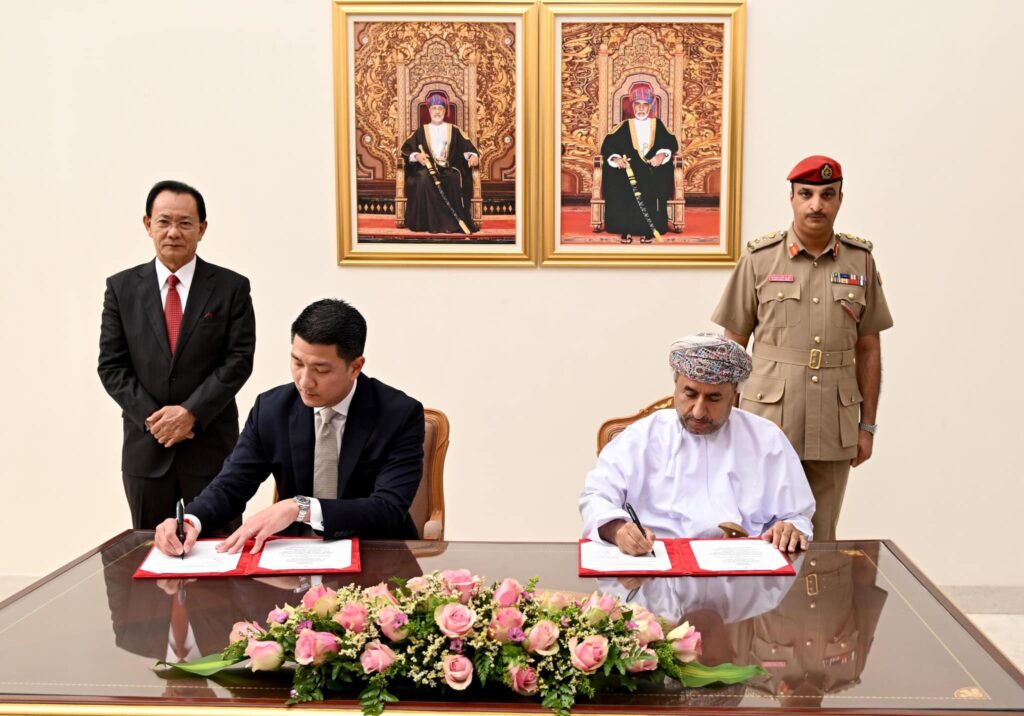The Navy Landing Craft Royal Navy of Oman (RNO) has officially started construction on a new fleet of Landing Craft Mechanized (LCM) vessels as part of a major upgrade to its naval capabilities. The steel-cutting ceremony, which signals the beginning of the construction phase, took place at the facilities of Marsun Public Company Limited, a well-known shipbuilder based in Thailand.
This event marks a key milestone in the strategic defense partnership between Oman and Thailand, and a crucial step in Oman’s broader plan to modernize its military and maritime forces.
A Major Leap in Naval Power
The four new LCM vessels will play a vital role in enhancing Oman’s ability to conduct amphibious operations, transport troops and equipment, and respond effectively during emergencies or natural disasters. These vessels are designed to be highly versatile, allowing the RNO to carry out missions in a wide variety of environments — from shallow coastal waters to open seas.

Landing craft like these are essential for navies that need to deploy forces quickly to shorelines, remote islands, or areas without traditional port facilities. They are especially valuable in the Gulf region, where maritime operations are crucial for both defense and disaster relief.
Oman’s Ministry of Defence emphasized that this acquisition aligns with the country’s goal of strengthening its national security infrastructure while also building self-reliance through knowledge transfer and workforce training.
Ceremony Brings Together Leaders From Both Nations
The steel-cutting ceremony was attended by senior officials and military leaders from both Oman and Thailand. His Excellency Dr. Mohammed Nasser Al Zaabi, Secretary-General of Oman’s Ministry of Defence, led the Omani delegation. He was joined by Rear Admiral Saif bin Nasser Al Rahbi, Commander of the Royal Navy of Oman, who highlighted the strategic importance of this project for the future of Oman’s naval operations.
From the Thai side, representatives from the Royal Thai Navy and the Thai Ministry of Defence were also present, reflecting the deepening cooperation between the two nations.
During the ceremony, executives from Marsun Public Company Limited reaffirmed their commitment to delivering high-quality vessels on schedule and meeting all the Royal Navy of Oman’s requirements.
Marsun: A Trusted Name in Shipbuilding
Marsun is one of Southeast Asia’s most respected shipbuilding companies. Established in 1980 and based in Thailand, the company has delivered more than 350 vessels to clients around the world. Its ships are known for their strength, precision engineering, and cutting-edge technology.
The company specializes in military and patrol vessels, including Fast Patrol Craft (FPC), Fast Attack Missile Craft (FAMC), Landing Craft Utility (LCU), and Landing Craft Mechanized (LCM) types. It is also involved in ship repairs, upgrades, and maintenance services.
Marsun’s experience with international defense clients makes it a reliable partner for Oman’s strategic naval goals. The new vessels being built for Oman will reflect Marsun’s proven expertise in crafting durable, mission-ready ships tailored to client needs.
Boosting Oman’s Local Capabilities
This project is not just about acquiring new ships — it’s also about growing Oman’s internal defense industry. According to officials, the shipbuilding agreement includes a localization component. This means that part of the work will focus on transferring knowledge and technical skills to Omani engineers, technicians, and naval personnel.
As part of this effort, Omani specialists will participate in training programs and workshops during the construction process in Thailand. These programs will help Oman’s naval and shipbuilding sectors gain valuable experience, paving the way for more domestic capability in future military projects.
This aligns with Oman Vision 2040, a national plan focused on economic diversification, human capital development, and reducing reliance on foreign suppliers.
A Strategic Step in a Changing Region
The Middle East is a region of rising geopolitical complexity, and many countries are investing in stronger maritime forces to protect shipping lanes, ports, and offshore assets. Oman’s coastline stretches more than 3,000 kilometers along the Arabian Sea and the Gulf of Oman, making naval strength a top national priority.
With growing regional threats such as piracy, smuggling, and maritime border disputes, having a capable and modern navy is critical for ensuring national security and economic stability. The new LCM vessels will allow the Royal Navy of Oman to respond quickly to regional challenges while improving its ability to support allies during joint exercises and peacekeeping missions.
A Symbol of Growing Oman–Thailand Relations
This naval cooperation also highlights the growing diplomatic and economic ties between Oman and Thailand. Both countries have enjoyed steady relations over the past decades, and projects like this one deepen those connections further.
By choosing a Thai company for such a high-profile project, Oman is showing confidence in Thailand’s defense manufacturing abilities while also opening doors for more collaboration in trade, technology, and training.
What’s Next?
Construction of the four Landing Craft Mechanized vessels is expected to proceed over the coming months. The first delivery is anticipated by late 2026, following rigorous testing and sea trials to ensure performance, safety, and reliability.
Once delivered, the ships will join the Royal Navy of Oman’s existing fleet, supporting both military and humanitarian missions. Officials believe these vessels will play a key role in strengthening Oman’s ability to secure its maritime borders and respond to regional emergencies with greater speed and flexibility.
Conclusion
The start of construction on these new LCM vessels represents more than just an upgrade for the Royal Navy of Oman — it is a symbol of forward-looking defense planning, strong international partnership, and commitment to local development. As both countries move forward with this project, the benefits are likely to extend well beyond shipbuilding — influencing diplomacy, trade, and long-term national strategy.
Oman Opens Third Green Hydrogen Auction in Duqm with $49B Vision


